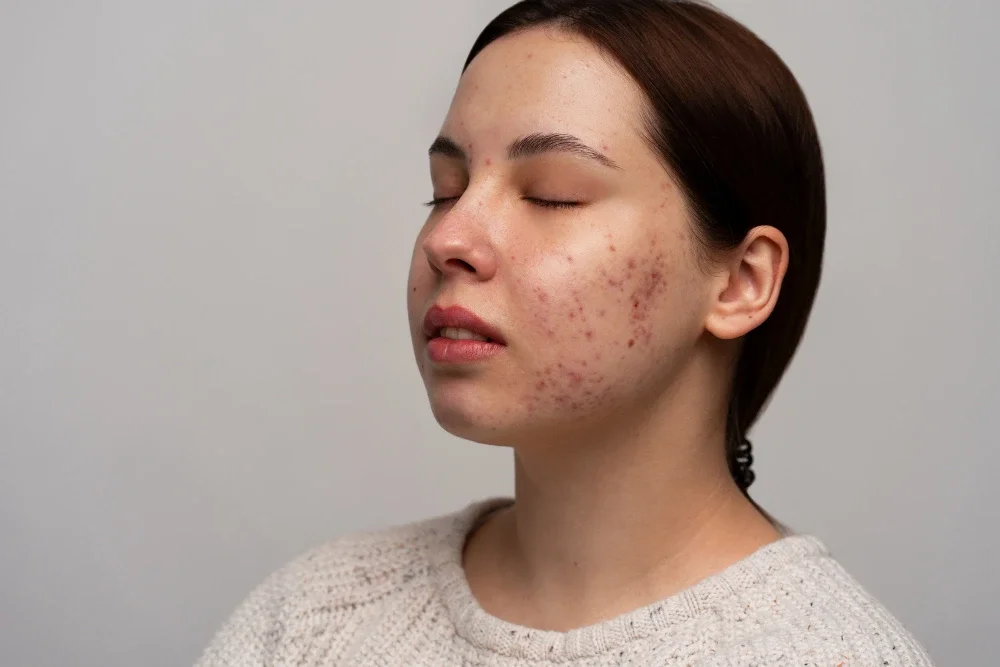What are the Different Types of Cancer and Their Symptoms?
What Is Cancer?
At its most basic level, cancer is a disease characterized by the uncontrolled growth and spread of abnormal cells. Our bodies are made up of trillions of cells that normally grow and divide as needed. When cells become old or damaged, they die, and new cells take their place. Cancer disrupts this orderly process. Abnormal cells grow when they shouldn't and don't die when they should, forming masses of tissue called tumours. These tumours can invade surrounding tissues and can spread to other parts of the body, a process known as metastasis.
Common Types of Cancer
1. Breast Cancer
Affects breast tissue, mostly in women but occasionally in men.
Symptoms include:
Lump in the breast or underarm
Change in breast shape or size
Skin dimpling or nipple discharge
2. Lung Cancer
Often linked to smoking, lung cancer starts in the lungs.
Symptoms include:
Persistent cough
Shortness of breath
Chest pain
Unexplained weight loss
3. Prostate Cancer
Common in older men, it affects the prostate gland.
Symptoms include:
Difficulty urinating
Blood in urine
Pelvic discomfort
4. Colorectal Cancer
Begins in the colon or rectum.
Symptoms include:
Blood in stool
Changes in bowel habits
Abdominal pain or cramps
5. Leukaemia
A cancer of the blood-forming tissues.
Symptoms include:
Fatigue
Frequent infections
Easy bruising or bleeding
6. Skin Cancer (Melanoma)
Occurs due to abnormal skin cell growth, often due to UV exposure.
Symptoms include:
New or changing moles
Sores that do not heal
Irregular pigmentation
7. Cervical Cancer
Affects the cervix and is often caused by the human papillomavirus (HPV).
Symptoms include:
Vaginal bleeding after intercourse
Pelvic pain
Unusual discharge
Common Symptoms of Cancer
Recognizing the general symptoms of cancer is vital for early diagnosis. While specific symptoms vary depending on the cancer's location, some common warning signs should never be ignored. Some symptoms are:
Change in bowel or bladder habits.
A sore that does not heal.
Unusual bleeding or discharge.
Thickening or a lump in the breast, testicles, or elsewhere.
Indigestion or difficulty in swallowing.
Obvious change in a wart or mole.
Nagging cough or hoarseness.
Other important signs include unexplained weight loss, persistent fatigue, fever, and pain. If you experience any of these symptoms for more than two weeks, it is crucial to consult a doctor.
Stages of Cancer
Cancers are staged to determine how much the disease has progressed:
Stage 0: Abnormal cells present but not yet cancer
Stage I: Cancer is localized
Stage II & III: Cancer has spread to nearby tissues or lymph nodes
Stage IV: Cancer has spread to distant organs (metastasis)
Knowing the stages of cancer helps doctors design effective treatment strategies.
What are the Different Types of Cancer and Their Symptoms?
Cancer is a word that carries immense weight, often bringing feelings of concern and uncertainty. However, knowledge is a powerful tool in health. Understanding the Different Types of Cancer and Their Symptoms is the first and most critical step toward early detection and effective treatment. In India, where cancer rates are on the rise, being informed can make a life-saving difference. This guide from JIET Medical College & Hospital provides a clear overview of what cancer is, its warning signs, and the modern treatments available.
Modern Cancer Treatment Options
Cancer treatment has advanced significantly. The approach is often multidisciplinary, combining different therapies for the best outcome.
Surgery: This involves physically removing the cancerous tumor and surrounding tissue. It is often the primary treatment for solid tumors that have not spread.
Chemotherapy: This treatment uses powerful drugs to kill fast-growing cancer cells. While effective, it can lead to Chemotherapy side effects like nausea, hair loss, and fatigue, which can be managed with supportive care.
Radiation Therapy: This uses high-energy rays (like X-rays) to kill cancer cells and shrink tumors. Similar to chemotherapy, there can be radiation therapy side effects, such as skin irritation and tiredness, depending on the area being treated.
Targeted Therapy & Immunotherapy: These are newer, more advanced treatments. Targeted therapy uses drugs that attack specific vulnerabilities in cancer cells, while immunotherapy boosts the body's immune system to find and destroy cancer.
Prevention and Precautions
While not all cancers are preventable, you can significantly reduce your risk by adopting a healthy lifestyle:
Avoid Tobacco: Using tobacco in any form is the single biggest risk factor for cancer.
Eat a Healthy Diet: Focus on fruits, vegetables, and whole grains, and limit processed meats and red meat.
Maintain a Healthy Weight and Be Active: Regular physical activity can lower your risk of many types of cancer.
Protect Yourself from the Sun: Limit exposure to UV radiation to prevent skin cancer.
Get Vaccinated: Vaccinations against HPV and Hepatitis B can help protect against liver and cervical cancers.
Regular Screenings: Participate in regular cancer screenings, such as mammograms and colonoscopies, as recommended by your doctor.
Expert Cancer Care at JIET Hospital, Jodhpur
Finding the right care is paramount. At JIET Medical College & Hospital, we strive to be the best hospital for cancer treatment in Rajasthan. Our dedicated Oncology department provides comprehensive, compassionate, and advanced cancer care, from accurate diagnosis to personalized treatment plans, supporting patients every step of the way.




